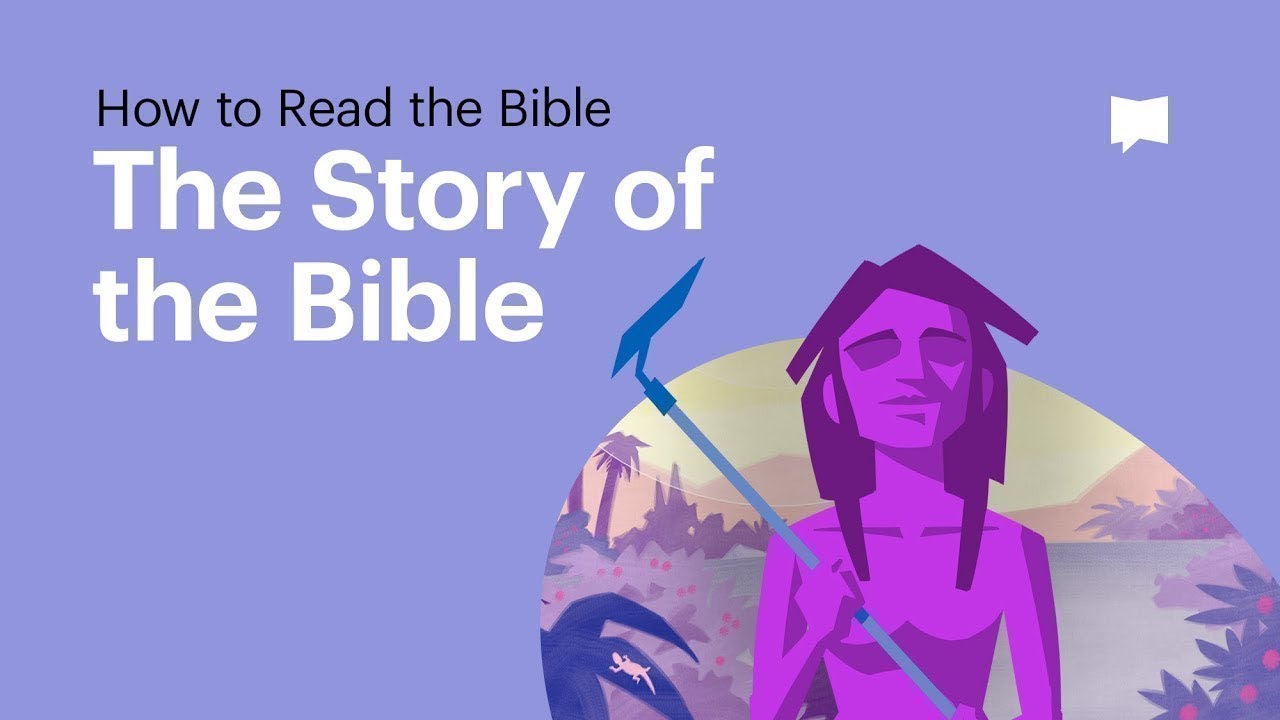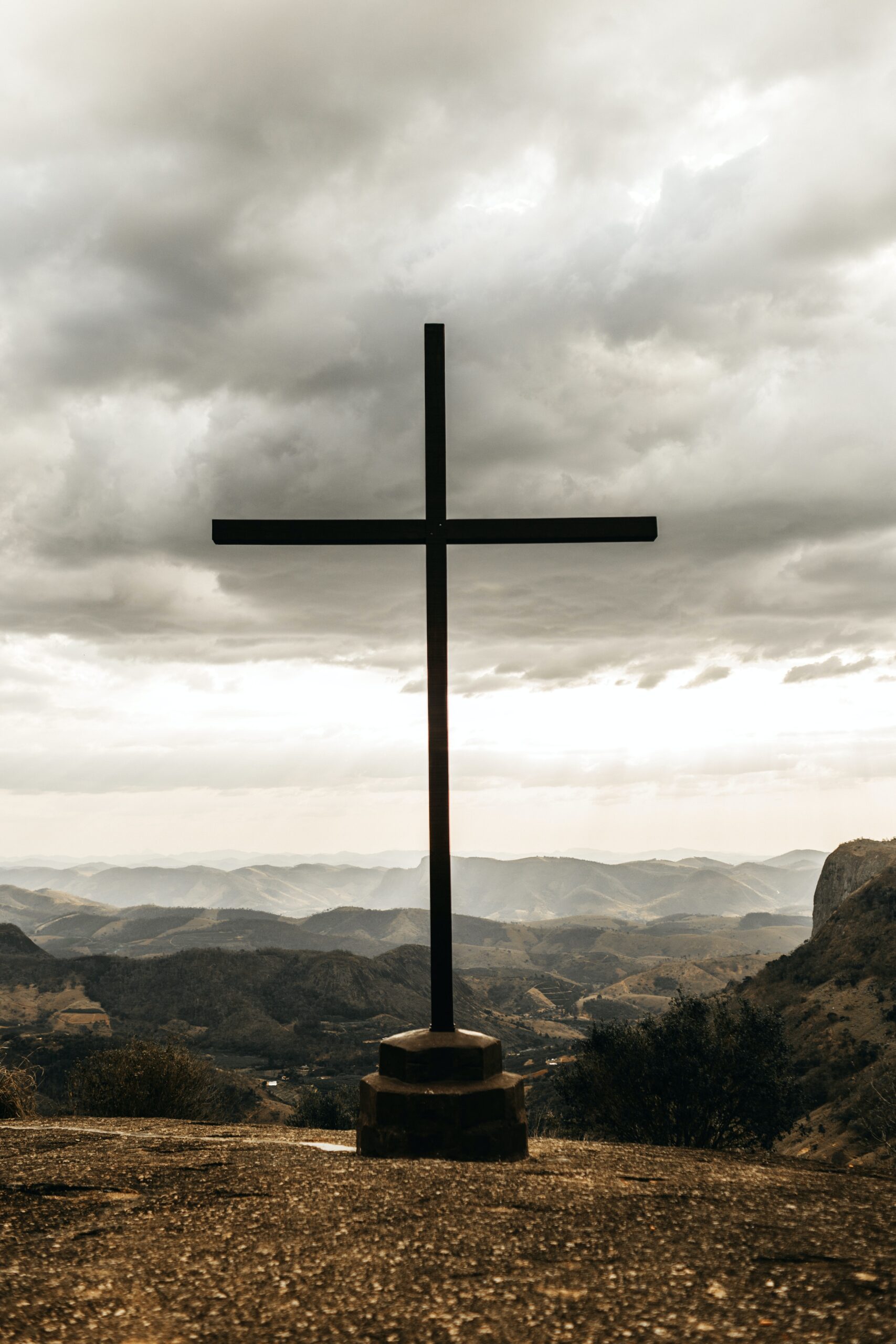“The Story of the Bible: A Journey from Chaos to Redemption” is an engaging video that summarizes the overall narrative of the Bible. It breaks down the story as a series of crucial decisions made by humanity, followed by the Israelites, and ultimately leading to Jesus. The video explores how these decisions redefine good and evil, and how they shape the course of history. From the chaos of the world to the promise of a new creation, this video takes you on an enlightening journey that reveals the power of faith, redemption, and the transformative message of love. Join BibleProject as they delve into the fascinating story of the Bible and its impact on our lives.
The video highlights the key themes and events from the Bible, tracing the role of humanity, the rise and fall of empires, and the ultimate message of hope found in Jesus. By exploring the choices made by individuals and communities, it conveys the fundamental message that love and servitude are the paths to true power and freedom. This captivating video invites you to see the Bible in a new light and discover the profound story of humanity’s journey from chaos to redemption. #Bible #BibleProject #BibleVideo
The Beginning: Creation and the Fall
Introduction to the Bible
The Bible is an important book that outlines the history and teachings of the Christian faith. It is a collection of many books written over a long period of time, but together, they tell a unified story. This story begins by introducing us to a beautiful mind, the author of all reality, a being called God. God has the power to take the chaotic darkness of the unformed world and bring order and beauty. And a garden full of life.
To crown this achievement, God creates these beings called humans, or in Hebrew, “Adam.” They are created in the image of God, which means they are appointed to rule this beautiful world for God, leveraging its full potential and creating even more beauty and order. This is a story of people using their power to make meaningful and life-giving work.
The Creation of the World and Humanity
In the beginning, God spoke everything into existence. He separated light from darkness, established the heavens and the earth, and created the plants, animals, and humans. God crafted a perfectly designed world that was meant to be a harmonious and flourishing home for humanity.
The Temptation and Fall of Adam and Eve
However, humanity is faced with a choice represented by a fruit tree. They could cooperate with God and find freedom by trusting His knowledge of good and evil. Or, they could seize power to define good and evil themselves, which, God warns, would lead to their demise. They listen to the voice of a dark and mysterious creature that tells them the choice is easy. Take the fruit. It will give you power and freedom to rule the world on your terms. So, they grab hold of this knowledge. As a result, they become suspicious and self-protective. This leads to broken relationships, violent power grabs, and ultimately, to an entire civilization, Babylon, that redefines evil as good. Thus, God scatters this corrupted human project.
Chaos and Corruption: The Story of Babel
The Tower of Babel
One significant event in this story is the construction of the Tower of Babel. The people of Babel united together to build a tower that would reach the heavens. They sought to make a name for themselves and challenge God’s authority. But God intervenes and confuses their language, dispersing them across the earth.
The Defiance of Humanity
The Tower of Babel serves as a powerful illustration of humanity’s defiance against God. Rather than acknowledging and submitting to God’s authority, humans often choose to pursue their own ambitions and glorify themselves. This disobedience leads to chaos and division.
Babylon: A Civilization in Corruption
In the story of Babel, we see the rise and fall of Babylon, a civilization that epitomizes corruption and evil. Babylon becomes a symbol of human rebellion against God’s order and goodness. Despite its grandeur and power, Babylon ultimately crumbles under its own weight.

This image is property of i.ytimg.com.
The Call of Abraham: A New Beginning
Introduction to Abraham
Amidst the chaos and corruption, God calls Abraham and his wife Sarah out of Babylon. He promises that from them will come a new nation, a people with a fresh opportunity to make the right decisions. If they succeed, it will open up this new path forward for others. For this reason, the rest of the Bible focuses on this family.
God’s Promise to Abraham
God makes a covenant, a binding agreement, with Abraham. He promises to bless him and make him the father of a great nation. God also promises to give Abraham and his descendants a land of their own, a place where they can thrive and be a blessing to others.
The Journey of Faith
Abraham and Sarah embark on a journey of faith, leaving behind the familiar comforts of Babylon. They trust in God’s promises even though they do not fully understand how they will be fulfilled. Through their faithfulness and dependence on God, they become the ancestors of the Israelite people.
Israel’s Story: From Slavery to the Promised Land
The Israelites in Egypt
After the time of Abraham, the Israelites find themselves living in Egypt as slaves. They are oppressed and groan under the harsh rule of Pharaoh. Yet, God hears their cries and raises up a deliverer, Moses, to lead them out of bondage.
The Exodus and God’s Deliverance
Through miraculous signs and wonders, God sets His people free from Egypt in an event known as the Exodus. He leads them through the Red Sea, providing a way of escape from their oppressors. God demonstrates His power and faithfulness by delivering the Israelites and bringing them into the wilderness.
The Wilderness Journey
Following their liberation from Egypt, the Israelites embark on a journey through the wilderness. This period of wandering is characterized by both their dependence on God for sustenance and their struggle with doubt and disobedience. Despite the challenges, God continues to provide for them and guide them.
Entering the Promised Land
After forty years of wandering, the Israelites arrive at the border of the Promised Land. God instructs them on how to conquer the nations that inhabit the land and establish themselves as a new nation under His guidance. With Joshua as their leader, they engage in battles and eventually settle in the land God has given them.
This image is property of images.unsplash.com.
The Judges and the First Kings: Israel’s Cycle of Sin
Introduction to the Period of the Judges
The period of the judges is marked by a cycle of sin and redemption. After the Israelites settle in the Promised Land, they face various challenges and threats from neighboring nations. In response to their disobedience, God raises up leaders known as judges to rescue them from oppression and guide them in their relationship with Him.
Israel’s Cycle of Sin and Oppression
During this time, the Israelites fall into a pattern of sin. They forget God’s commandments and follow the practices and gods of the surrounding nations. As a consequence, they face periods of oppression and hardship, often brought about by their own idolatry and disobedience. When they cry out to God for help, He raises up judges to deliver them.
The Rise of the Monarchy
The period of the judges culminates in the establishment of a monarchy in Israel. The people demand a king to rule over them like the other nations, despite warnings from God. Saul becomes the first king of Israel, followed by David, who is named a man after God’s own heart. Under David’s reign, Israel experiences prosperity and expansion, setting the stage for the kingdom’s golden era.
The Rise and Fall of Israel and Judah
The Kingdom of Israel
Following the reign of King David, his son Solomon takes the throne. Under Solomon’s rule, Israel reaches its peak in terms of wealth, power, and influence. However, Solomon’s later years are marked by turning away from God and indulging in idolatry. As a result, the kingdom becomes divided, with ten tribes forming the Northern Kingdom of Israel.
The Kingdom of Judah
The remaining tribes, including the tribe of Judah, form the Southern Kingdom of Judah, with Jerusalem as its capital. The kingdom of Judah experiences a mixed history, with some righteous kings leading the people in worship of Yahweh, while others lead them astray into idolatry. Ultimately, both Israel and Judah fall into captivity and exile due to their persistent disobedience.
The Exile to Babylon
The kingdom of Judah is conquered and its people are taken captive to Babylon, as had been prophesied by earlier prophets. The exile marks a dark period in Israel’s history as they are removed from their land and forced to live in a foreign land as exiles. Yet, even in exile, God continues to speak through the prophets, offering hope for restoration and future redemption.
This image is property of images.unsplash.com.
The Prophets: Hope and Warning in Exile
Introduction to the Prophets
The prophets are individuals chosen by God to act as His messengers and speak His words to the people of Israel and Judah. Their primary role is to call the people to repentance, warn of the consequences of their actions, and offer hope for restoration and renewed relationship with God.
The Call to Repentance
Throughout Israel’s history, the prophets emphasize the importance of repentance. They urge the people to turn away from their sinful ways, to remember God’s covenant, and to seek justice, mercy, and righteousness. The prophets warn that failure to heed their message will lead to further destruction and exile.
Hope for Restoration
Despite the dire warnings and the historical failures of Israel and Judah, the prophets offer a message of hope. They speak of a day when God will restore His people, bring them back to the land, and establish a new covenant with them. The prophets anticipate a time of spiritual renewal and a future Messiah who will bring salvation and establish God’s kingdom on earth.
The New Covenant: Jesus and the Kingdom of God
The Birth and Ministry of Jesus
The New Testament begins with the birth of Jesus, who is the long-awaited Messiah, the fulfillment of the promises made by God to His people. Jesus, born in Bethlehem, grows up to proclaim the good news of the kingdom of God. He performs miracles, teaches with authority, and challenges the religious leaders of His time.
Jesus’ Teachings on the Kingdom of God
Jesus uses various parables and teachings to explain the nature and values of the kingdom of God. He emphasizes the importance of repentance, humility, love for God and others, and servant leadership. Jesus teaches that true power is found in serving others, and that those who love and forgive their enemies are the ones who will ultimately bring about God’s kingdom.
The Death and Resurrection of Jesus
Despite His teachings and miracles, Jesus faces opposition from the religious leaders. He is falsely accused, convicted, and crucified. However, His death and subsequent resurrection become the pivotal events in human history. Through His sacrifice, Jesus conquers sin and death, offering salvation and new life to all who believe in Him.

This image is property of images.unsplash.com.
The Early Church: Spreading the Gospel
The Formation of the Early Church
After Jesus’ resurrection, His followers, known as disciples, continue His mission by spreading the good news of salvation through Him. The early church is formed as a community of believers who gather together for worship, teaching, fellowship, and the breaking of bread (communion). The apostles play a vital role in leading and guiding the early church.
Persecution and Growth
The early church faces persecution and opposition from both religious and political authorities. Many believers are martyred for their faith, yet the church continues to grow and spread. The message of Jesus and His resurrection resonates with people from various backgrounds, and the early church becomes a diverse and thriving community.
The Spread of Christianity
Through the bold preaching and witness of the early believers, Christianity rapidly spreads throughout the Roman Empire and beyond. The apostle Paul plays a crucial role in this expansion, undertaking missionary journeys and establishing communities of faith in various cities. Christianity becomes a transformative presence in the ancient world, challenging the existing societal structures and belief systems.
The Future: Hope for Redemption and Restoration
The Hope of the Second Coming of Christ
The Bible concludes with a vision of the future, where Jesus promises to return and bring about the final fulfillment of God’s kingdom. This event is known as the Second Coming of Christ. It is a day of judgment, where all people will be held accountable for their actions and their response to Jesus. Believers look forward to this day with hope and anticipation for the renewal and restoration of all things.
The Final Judgment and Renewal
The Second Coming is followed by the final judgment, where God will separate the righteous from the wicked. Those who have trusted in Jesus as their Savior will inherit eternal life in the renewed creation, while those who have rejected Him will face eternal separation from God. This judgment will usher in an era of full restoration, where God’s kingdom will be fully established and His purposes will be accomplished.
The Reign of God’s Kingdom
The Bible ends with a beautiful vision of God’s kingdom, where all things are made new. The joining of heaven and earth, the elimination of evil, and the reconciliation of all creation take place. Humanity, empowered by the love and power of God, is able to rule over the world in harmony and love. It is a vision of redemption, restoration, and the ultimate triumph of God’s goodness and grace.
In conclusion, the story of the Bible is a grand narrative that encompasses creation, humanity’s fall, God’s redemptive work throughout history, and the hope of a future restoration. It is a story that speaks to the nature of humanity, the reality of brokenness, and the incredible love and grace of God. The Bible invites us to participate in this story, to discover God’s truth and purpose for our lives, and to be agents of love, justice, and transformation in the world.









